Uncategorized
Beggars in Limousines arriving at UNGA, By Dele Sobowale
Published
4 months agoon

“A man cannot gradually enlarge his mind as he does his house.” – Alexis de Tocqueville, 1805-1859”.
African leaders also cannot gradually enlarge their minds just as they expand their appetites for self-enrichment and waste of public funds.
If you are still wondering why Africa, especially the sub-Sahara part of it, has been underdeveloped and will remain backward, even if the world lasts several million years, the United Nations General Assembly, UNGA, just ended, in September 2024 provides all the answers you need.
But, before going into the substance of today’s article, it will be useful to divert to late Lee Kuan Yew, 1923-2015, the first Prime Minister of Singapore.
Yew took a small island, without natural resources, no abundant manpower and turned it into an economic, technological and geo-political superpower in 30 years. Nigeria is now 64 years old as an independent nation. All our leaders put together had managed to turn our country into a beggar nation in twice the time. Under Yew, Singapore went from rags to riches; under Nigerian leaders, we descended from riches to rags and we might soon go naked. Yew then wrote a best selling book titled, ‘From The Third To The First World In A Generation’.
It is a book from which our leaders could have learnt. But, as our own Dr Nwajei, computer guru, had said several times, “If you want anything hidden from the African, put it in a book.”
A generation in demographics is defined as thirty years. For the sake of Nigerians who read it and forgot a relevant story in the book, as well as those too busy to read it, I will explain how our present predicament had its antecedents in the First Republic; as our Founding Fathers mounted the saddle after Britons.
What Our Fathers Left Us
“What does diminishing time not corrupt? Our grandparents brought forth feebler heirs; we are further degenerate; and soon will beget progeny more wicked.” – Horace, 65-8 BC, Vanguard Book of Quotations, p. 247.
Yew met one of our founding fathers and this was what he wrote on page 352.
“Raja [his Finance Minister] and I were seated opposite a hefty Nigerian, Chief Festus Okotieboh, their Finance Minister. The conversation is still fresh in my mind. He was going to retire soon, he said. He has done enough for his country and now he had to look after his own business, a shoe factory. As Finance Minister, he had imposed a tax on imported shoes so that Nigeria could make shoes. Raja and I were incredulous. Chief Festus… was elegantly camouflaged [underlying mine] in Nigerian robes with gold ornamentation. I went to bed that night convinced that they were a different people playing to a different tune.”
Here was the Prime Minister of a new and poor country in the 1960s, looking with disdain on the Finance Minister of one of the wealthiest countries at the time; and predicting, quite accurately, that with Ministers like Okotieboh, Nigeria was headed for the dustbin of history.
We are almost there now; because virtually every government since then had empowered individuals who “impose taxes”, award road contracts to firms in which their sons have interest – while asking the people, who will pay dearly for the waste and corruption to wait for a better future. Present admonitions, notwithstanding, it might never happen.
At federal and state levels, over-bloated contracts are awarded to in-laws, political associates, friends and other hangers-on – not because they are the most likely to perform, but, because as one said: “If I don’t favour my friends, do you expect me to help my enemies?” as if the nation has been divided only into friends and enemies. That is the African leader for you.
Several of them were on parade in New York City last month repeating the same show Okotieboh put on in the 1960s. Obviously, we are not only slow learners; in many instances we never learn – irrespective of the era.
African leaders march into UN exhibition opulence
“Every country has the government it deserves.” – Joseph de Maistre, 1753-1821.
The leaders that attended the UNGA reflected the values of their governments and their people. A friend sent me a report about the Assembly focusing on the cars Presidents and Prime Ministers drove to UN Headquarters. Virtually all the African leaders flew into NYC in Presidential aircrafts; they drove in with expensive limousines – complete with well-attired chauffeurs to emphasise the importance of the dignitaries arriving. No expense was spared to obtain the best possible. They were also lodged in the best hotels New York City can provide with members of their delegation. They obviously came to enjoy themselves.
By contrast, the European leaders arrived in small cars; drivers modestly but neatly dressed. In some cases two leaders shared a car; and some even came in group buses. The only luxury they permitted themselves was to ensure the small cars and buses were air-conditioned. Almost all were lodged in less expensive or budget hotels. They were there for serious business; not for a pageant.
Nigeria’s Vice President, Shettima, representing the government in place of the President, who was avoidably absent, was like the rest of the representatives of Africa – flambouyant. He, incidentally, came with several messages for the world; genocide in Gaza and Lebanon; climate change caused by advanced economies for which poor nations were paying a disproportionate price. All of these would have been better received if the address did not include a request for debt forgiveness by the advanced nations. Surely, Shettima and the African nations begging again for debt relief must be aware that they were in this same situation 20 years ago.
In 2004, poor countries, mostly African and including Nigeria, were in the same forum with beggars’ bowls in hands. Relief was given; with a stern warning: “go and sin no more”. Unfortunately, African leaders forget history or never learn from it. In 2004, it was clear that debt forgiveness was required mostly because of corruption in public and private sectors of African nations.
Unlike Singapore, which punishes proven cases of corruption severely, African countries, including Nigeria reward it. Sitting in our Senate are several former Governors accused of corruption – whose cases have been bottled up for years. The Executive branch has at least a Minister who, as Governor, claimed to have paid N900 million and given several Hilux trucks to terrorists in his state – in addition to granting them amnesty.
“The world does not owe us a living. We cannot live by the begging bowl.” That was on page 53 of Yew’s book. The Singaporean leader must have been looking with well-deserved contempt at Shettima; as our Vice President held out the begging bowl again. Leaders of other nations, who are being asked to donate their taxpayer’s money to unrepentant beggars, must be wondering when the begging will stop. The evidence before them is akin to gorgeously dressed beggars arriving at a party in luxurious cars only to come and hustle other modestly attired guests for alms. It was disgraceful, and there will never be an end to Nigeria living on the begging bowl until we shun pre-meditated waste and pervasive corruption. We don’t want to produce; we want to live off other peoples’ surplus. Beggars, however well-dressed, will never be productive.
You may like
-


UN warns Sudan rebels may be getting weapons in Chad from UAE cargo planes
-
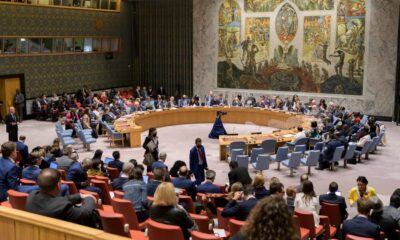

UN Security Council deliberates stance on Sudan war
-
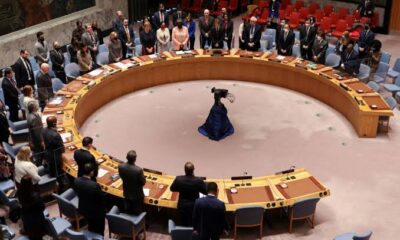

Nigeria gets backing of West African countries in bid to join UN security council
-
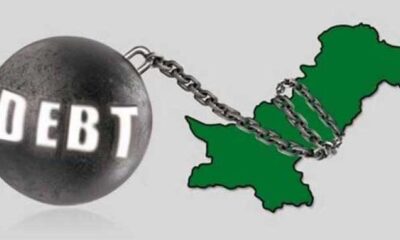

UN expert warns debt undermining poor countries’ development aspirations
-
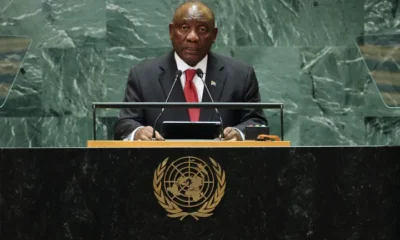

Video: UN Security Council must be reformed to accommodate Africa—Ramaphosa
-


Kenya’s Ruto receptive to turning Haiti mission to U.N. peacekeeping
Uncategorized
Absa PMI report shows South African factory sector contracts in November
Published
2 months agoon
December 2, 2024
According to a local purchasing managers’ index (PMI) survey, industrial activity in South Africa decreased in November as a result of unstable market circumstances.
The South African bank Absa’s seasonally-adjusted PMI dropped from 52.6 points in October to 48.1 points in November, below the 50-point threshold that distinguishes growth from contraction.
Absa stated that last month’s declines in the business activity and new sales orders sub-indices undid the advances it had made in September and October.
“While local inflation and interest rates have come down relative to earlier in the year, demand remains unpredictable,” Absa said in a statement.
The bank claims that although international demand helped South Africa’s manufacturing sector in November, dangers will still exist in the form of internal uncertainty and a declining rand.
“The global political outlook has become more complicated with concerns about global growth and trade dynamics following the election of Donald Trump as US president earlier in November,” it added.
Uncategorized
Nigeria: President Tinubu urged to publish names of contractors who made away with 31 MDAs’ N167bn
Published
2 months agoon
December 1, 2024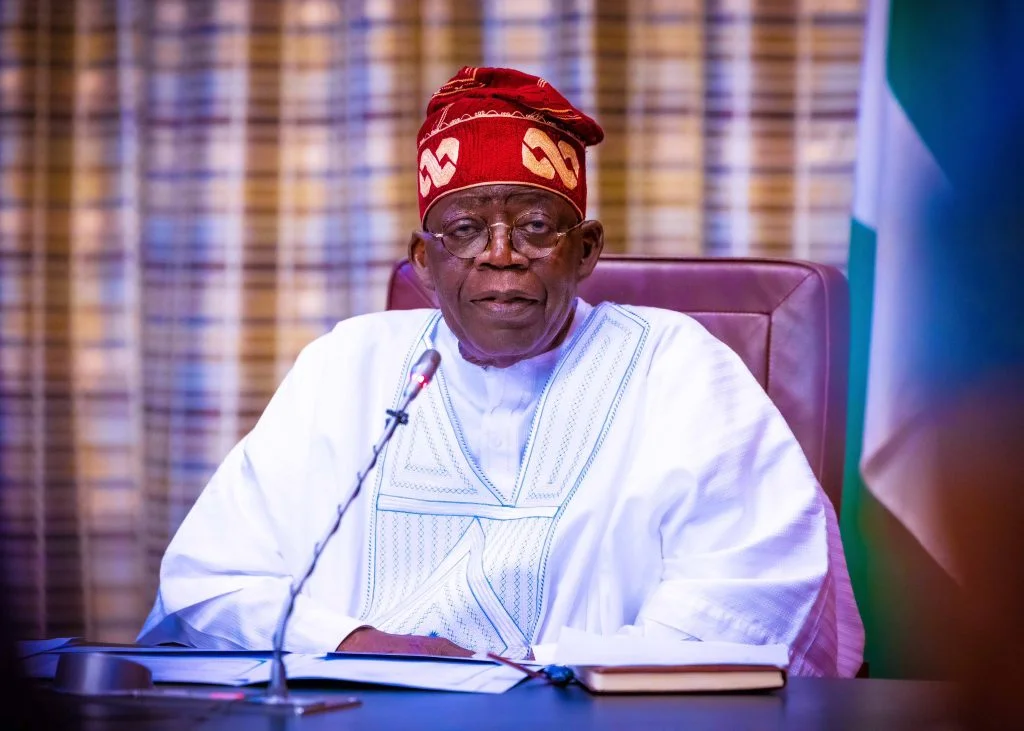
Nigerian advocacy group, the Socio-Economic Rights and Accountability Project (SERAP), has challenged President Bola Tinubu to order the Minister of Finance and Coordinating Minister of the Economy, Olawale Edun, and the Accountant-General of the Federation, Oluwatoyin Sakirat Madein, to publish names of the companies and contractors who collected over N167 billion from 31 ministries, departments and agencies (MDAs) but failed to execute any projects.
SERAP, in a letter addressed to Tinubu on Sunday, also urged the President to mandate the relevant authorities to provide the details of the projects for which the contractors collected N167 billion, and the proposed locations, as well as the number of contractors involved and the amount collected by each contractor.
The group said damning revelations documented a released 2021 audited report by the Office of the Auditor-General of the Federation point to the fact that there was massive fraud in the procurement and non-prosecution of the contracts.
“The details to be published should include the names of shareholders and others that might have any ownership interests in the companies that collected over N167 billion from 31 MDAs but disappeared with the money without executing any projects,” the letter signed by SERAP deputy director Kolawole Oluwadare, said.
“SERAP urges the President to direct the Attorney General of the Federation and Minister of Justice Mr Lateef Fagbemi, SAN, and appropriate anti-corruption agencies to promptly bring to justice, as appropriate, any companies and contractors who collected the over N167 billion of public funds but failed to execute any projects.
“SERAP also urged the President to name and shame the companies and contractors and to ensure the recovery of the over N167 billion reportedly collected by them for projects not executed. The recovered money should be fully remitted to the treasury.
“Publishing the names will make it hard for companies and contractors to get away with complicity in grand corruption.
“Holding the companies and contractors who collected over N167 billion from 31 MDAs but disappeared with the money would also prevent and combat waste, fraud, and abuse in the spending of public funds.
“The Nigerian Bulk Electyricity Trading Plc., (NBET) alone reportedly paid N100 billion to companies and contractors for projects not executed.
“It is important to show that your government would not shield or allow ingrained wrongdoing by companies and contractors to go unpunished.
“Unless the names of the companies and contractors are disclosed and widely published, alleged corrupt companies and contractors executing public projects will not be deterred and the victims of corruption that they allegedly committed will continue to be denied access to justice and effective remedies.
“The allegations of corruption involving many companies and contractors who collected over N167 billion from 31 MDAs have continued to impair, obstruct and undermine access of poor Nigerians to public goods and services.
“According to the 2021 annual audited report by the Auditor-General of the Federation published on Wednesday 13 November 2024, thirty one (31) ministries, departments and agencies (MDAs) paid over N167 billion [N167,592,177,559.40] to companies and contractors for contracts and projects not executed.
“Companies and contractors reportedly collected N100 billion from the Nigerian Bulk Electricity Trading Plc., (NBET) for contracts and projects not executed.
“The thirty other MDAs including Nigerian Correctional Service; National Pension Commission, Abuja; Federal College of Land Resources Technology, Owerri; and Hydrocarbon Pollution Remediation Project (HYPREP) Office.
“Others include: Petroleum Technology Development Fund (PTDF); Federal Ministry of Youth and Sports Development; Federal Medical Centre, Bida, Niger state; National Centre for Women Development; Institute for Peace and Conflict Resolution; National Business and Technical Examinations Board (NABTEB); Federal University of Gasua; and Ministry of Niger Delta Affairs.
“The companies and contractors that allegedly disappeared with public funds meant for public projects may also be liable for aiding and abetting the commission of acts of grand corruption.”
“We would therefore be grateful if the recommended measures are taken within seven days of the receipt and/or publication of this letter. If we have not heard from you by then, SERAP shall take all appropriate legal actions to compel your government to comply with our request in the public interest.
“Failure to take punitive and dissuasive measures would allow corrupt companies and contractors to continue to undermine the rule of law and socio-economic development of the country.
“Senior public officials who apparently served as intermediaries for these companies and contractors continue to escape justice. The allegations of corruption involving the use of the public funds may be responsible for the developmental challenges confronting the country and lack of effective and efficient public goods and services.
“The allegations that the companies and contractors collected over N167 billion of public funds from 31 MDAs but failed to execute any projects clearly amount to a fundamental breach of national anticorruption laws and the country’s international anticorruption obligations.”
“The consequences of corruption are felt by citizens on a daily basis. Corruption exposes them to additional costs to pay for health, education and administrative services.
“Another consequence of corruption is the growing inequality in the country, where the privileged few have access to all public resources, while the vast majority of citizens are deprived of access to public services.
“Corruption undermines economic development of the country, trapping the majority of Nigerians in poverty and depriving them of opportunities.
“The Minister of Finance and Coordinating Minister of the Economy and the Accountant-General of the Federation have sacred duties to ensure that natural resources and wealth are transparently and accountably used solely for the purposes for which they are budgeted, and for the effective development of public goods and services.”
“Your government has a responsibility to ensure transparency and accountability in how any public funds are spent by MDAs, to reduce vulnerability to corruption and mismanagement.”
“The n blame.
“The UN Convention against Corruption to which Nigeria is a state party contains requirements of integrity and honesty in economic, financial or commercial activities-in the public and private sectors.”
“It also imposes obligations on the government to ensure that sanctions imposed for corruption on natural and legal persons are effective, proportionate and dissuasive.”
“The Nigerian Constitution, Freedom of Information Act, and the country’s anti-corruption and human rights obligations rest on the principle that citizens should have access to information regarding their government’s activities.”
EDITOR’S PICK


Nigeria: Marketers predict further price cut as another refinery begins operations
Oil marketers and the Nigerian Midstream and Downstream Petroleum Regulatory Authority expect refined petroleum product prices to reduce as another...


Kenya: Consumer inflation rises to 3.0% from 2.8%
Kenya’s statistics agency said on Tuesday that Kenya’s consumer price inflation increased slightly to 3.0% year-over-year in December from 2.8%...


South Africa’s Transnet’s half-year deficit hits $117m
Transnet, a state-owned logistics company in South Africa, announced on Tuesday that it had lost 2.2 billion rand ($117.48 million)...


Nigeria, China extend $2bn currency swap deal
A 15 billion yuan ($2 billion) currency-swap arrangement between China and Nigeria has been extended to boost investment and commerce...


Egypt’s central bank maintains overnight rates
As anticipated, Egypt’s central bank has maintained its overnight interest rates, stating that although inflation was predicted to drop significantly...


Illicit flows cost Nigeria, others $1.6bn daily— AfDB
According to the African Development Bank (AfDB), illicit money flows and profit shifting by multinational corporations doing business in Africa...


‘Don’t start what you can’t finish’, ex-Nigerian official replies President Tchiani
Former Nigerian Aviation Minister, Femi Fani-Kayode, has told President Abdourahamane Tchiani of Niger Republic to refrain from making infantile and...


Again, Starlink raises prices of its services in Nigeria
Elon Musk’s satellite internet service provider, Starlink, has again jacked up the prices of its services in Nigeria after an...


Former President of Moroccan club Raja sentenced to 3 years in prison
The former President of Moroccan top club, Raja Casablanca, Mohamed Aouzal, has been sentenced to three and a half years...


Zambia announces second case of Mpox as country battles cholera outbreak
The Zambian Ministry of Health has reported a second case of Monkeypox, popularly known as Mpox, in Kitwe region of...


